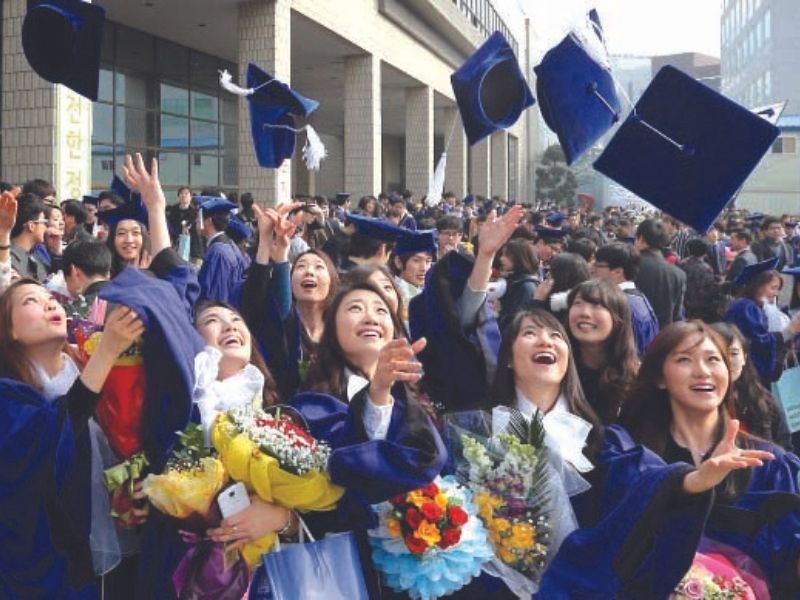
South Korea university graduates: birth rate threat
Nearly half of South Korea’s universities could close in the next quarter-century as the country’s population continues to shrink, with regional institutions especially hard hit, a respected academic warns.
Dong-Kyu Lee, professor of disaster management at Dong-A University, says he expects only 190 out of 385 existing universities to survive the next 25 years. Outside Seoul which hosts Korea’s most prestigious higher education institutions, a mere 44 percent of universities are expected to remain open, compared with 80 percent in the capital.
Contracting demographics have already forced some universities to close, particularly outside Seoul. “At present, I think there is no hope for parochial universities,” says Prof. Lee, adding that these institutions are nearly “100 percent dependent on college tuition” and deeply vulnerable to declining enrolment.
His report, which was presented at a forum held jointly by the Seoul National University Institute for Social Development and Korea Institute for Health and Social Affairs, is based on the rate of childbirth in Korea’s regions, university enrolment rates and student numbers in primary and secondary education.
While academics remain divided over just how badly Korea’s demographic crunch will hit its university sector, there is broad agreement that many of the country’s universities will be under threat. And in a nation where 70 percent of students already pursue higher education, boosting enrolment is a formidable challenge. Prof. Lee predicts that the coming years will generate “fierce competition” for full-time academic positions and “unfair recruitment of part-time professors,” by universities.
Stuart Gietel-Basten, professor of social science and public policy at the Hong Kong University of Science and Technology and an expert in Asian demography, says that many universities, particularly in the regions won’t be able to stave off closure. He likens the process to industrial decline in former boom towns: “It’s like car factories in Detroit — there was nothing there before, then they built all these factories, then they closed down.”
But John Lie, professor of sociology at the University of California, Berkeley, expresses confidence that Koreans’ appetite for higher education will buffer the outcome for universities. “South Koreans are unlikely to recuperate fully from the diploma disease: the desire for education credentials. This is true not just for students and their parents, but also employers, both private and public,” he says.
Therefore, he takes these grim predictions with a grain of salt. “Although there are many mediocre universities in South Korea, it’s very unlikely that close to half will close in 25 years, barring a major catastrophe. The prognostication is from one academic study, and vatic pronouncements from academics rarely come true,” he says.
(Excerpted and adapted from The Economist and Times Higher Education)
Also read: South Korea: Foreign faculty blues


























